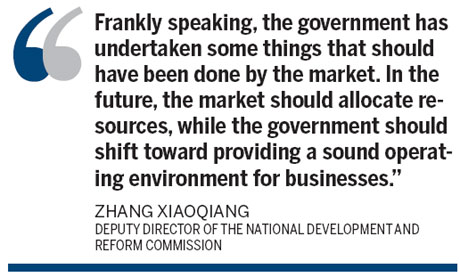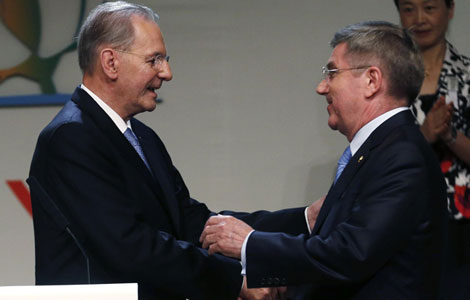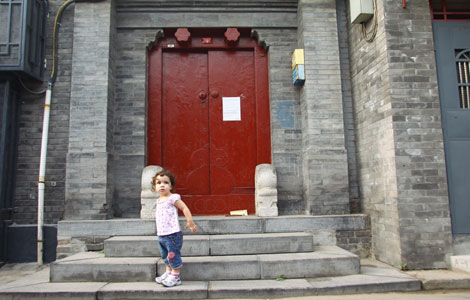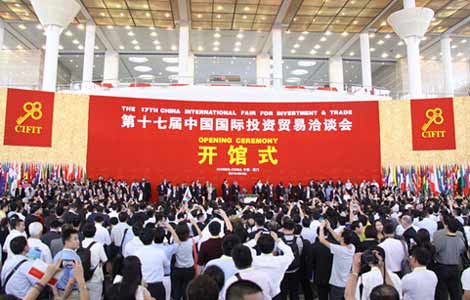Nation set to become the world's largest solar power
Updated: 2013-09-12 07:53
By Zheng Yangpeng in Dalian (China Daily)
|
||||||||
China is expected to overtake Germany to become the world's largest solar power generating country this year, said Zhang Xiaoqiang, deputy director of the National Development and Reform Commission, on Wednesday at the Summer Davos Forum.
The nation's installed photovoltaic power capacity as of Dec 31 was 6.5 million kilowatts, according to the China Electricity Council. China will add at least 10 million kW of capacity every year from 2013 to 2015, the State Council, the cabinet, has said.
The rapid growth will enable China to have a total installed solar capacity of 35 million kW by 2015.
Zhang also said that the country's wind power capacity has grown rapidly. Last year, wind power generation exceeded that produced by nuclear reactors, and it ranked 10th worldwide.
At a separate joint interview with Chinese media, the NDRC official also said that China's huge domestic market would ensure medium- to high-level growth in the next decade.
China also has exciting prospects such as the urban transit sector, he said, with high levels of urban rail construction to continue for at least 20 years, he said.
"In small nations, they build maybe three urban railways and that's all. But in China, there's enormous demand in many cities," he said.
But he noted that as China urbanizes, which will produce enormous demand, the nation should also pay heed to agricultural modernization and the service industry.
China has less than 9 percent of the world's arable land but about 20 percent of the world's population - a discrepancy that poses a great challenge for China's urbanization. As more people move into cities and draw labor away from rural areas, raising farm productivity will be a challenge, he said.
Also at the forum, Zhang said that changing the role of government will be a key topic at the upcoming third plenary session of the 18th CPC Central Committee.
"Frankly speaking, the government has undertaken some things that should have been done by the market," he said.
"In the future, the market should allocate resources, while the government should shift toward providing a sound operating environment for businesses."


 China's Christian churches reduce leaders' age ceiling
China's Christian churches reduce leaders' age ceiling
 Student's rare blood bonds Kazakhstan and China
Student's rare blood bonds Kazakhstan and China
 Apple's low-end phone price disappointing
Apple's low-end phone price disappointing
 US marks 9/11 anniversary
US marks 9/11 anniversary
 German Bach elected as IOC president
German Bach elected as IOC president
 Implant surgery for boy's eyes a success
Implant surgery for boy's eyes a success
 Hutong life facing change
Hutong life facing change
 New York Fashion Week in session
New York Fashion Week in session
Most Viewed
Editor's Picks

|

|

|

|

|

|
Today's Top News
Report questions US firms pursuing cloud computing in China
Reducing poverty gains momentum in Asia
China turns to US sorghum for animal feed
Russia proposal likely to avert US airstrikes
Li stresses transformation of economy
FM dismisses Philippine accusations
China's global firms face 'trust gap'
Shanghai gets tips on innovation
US Weekly

|

|






